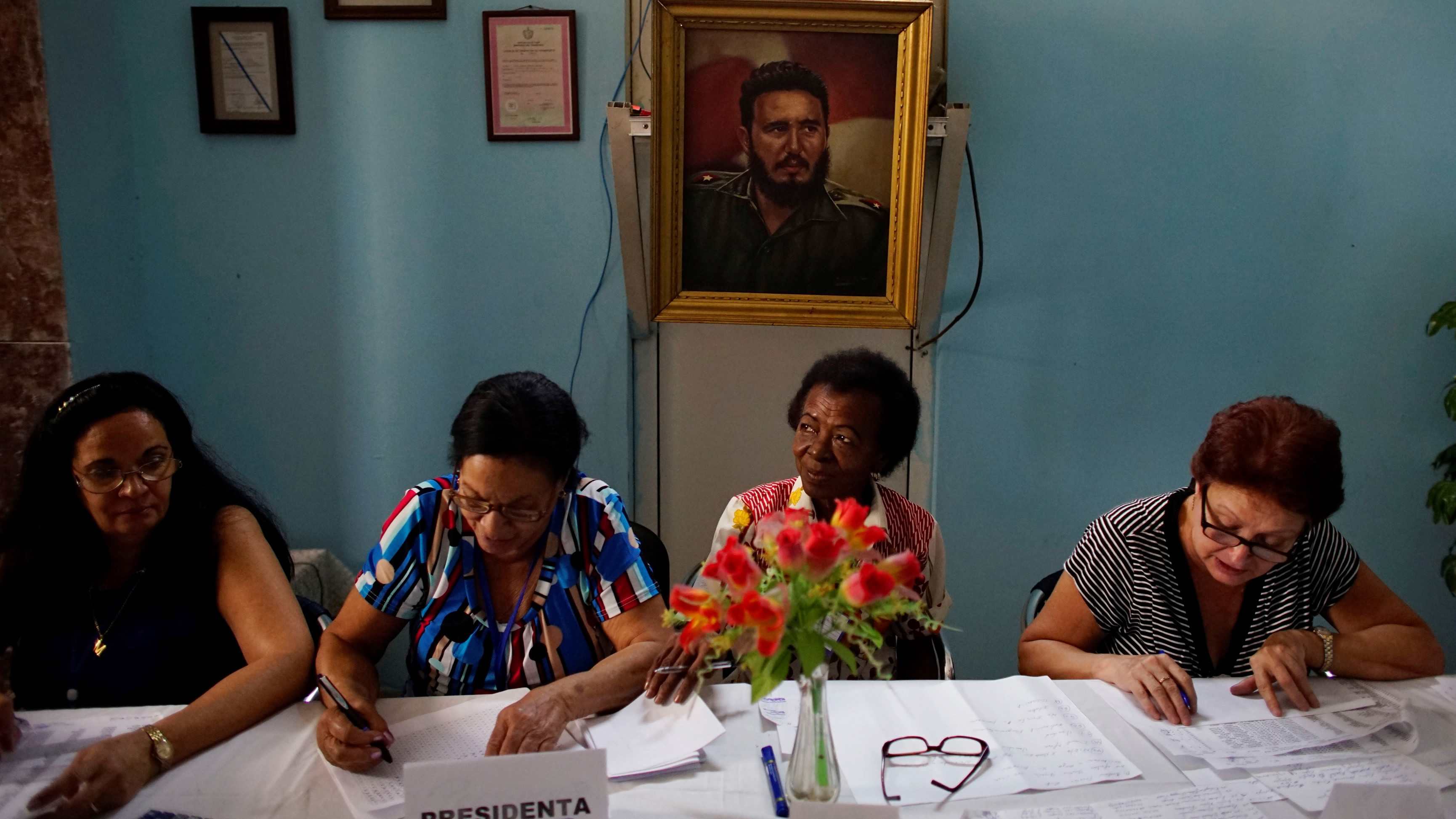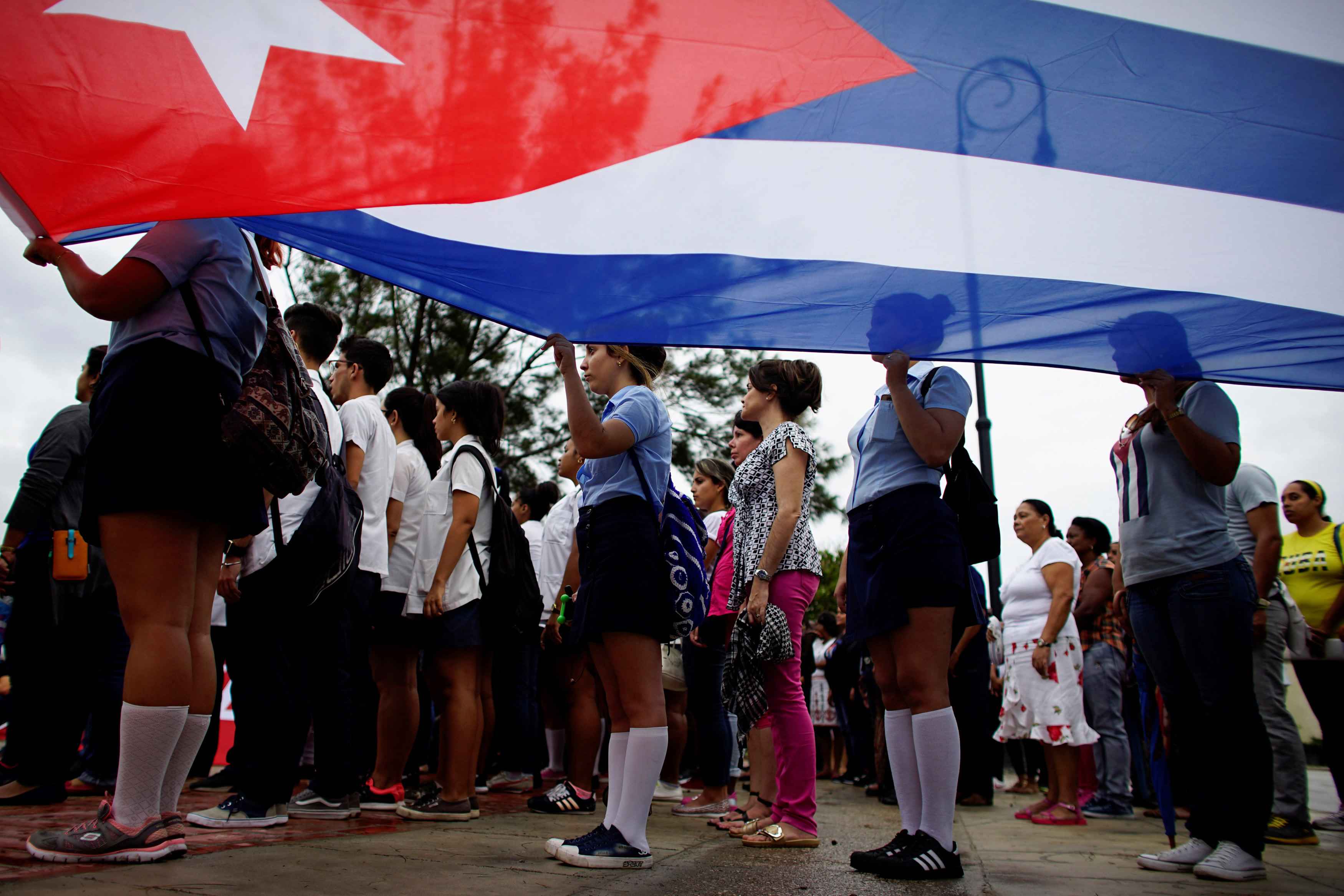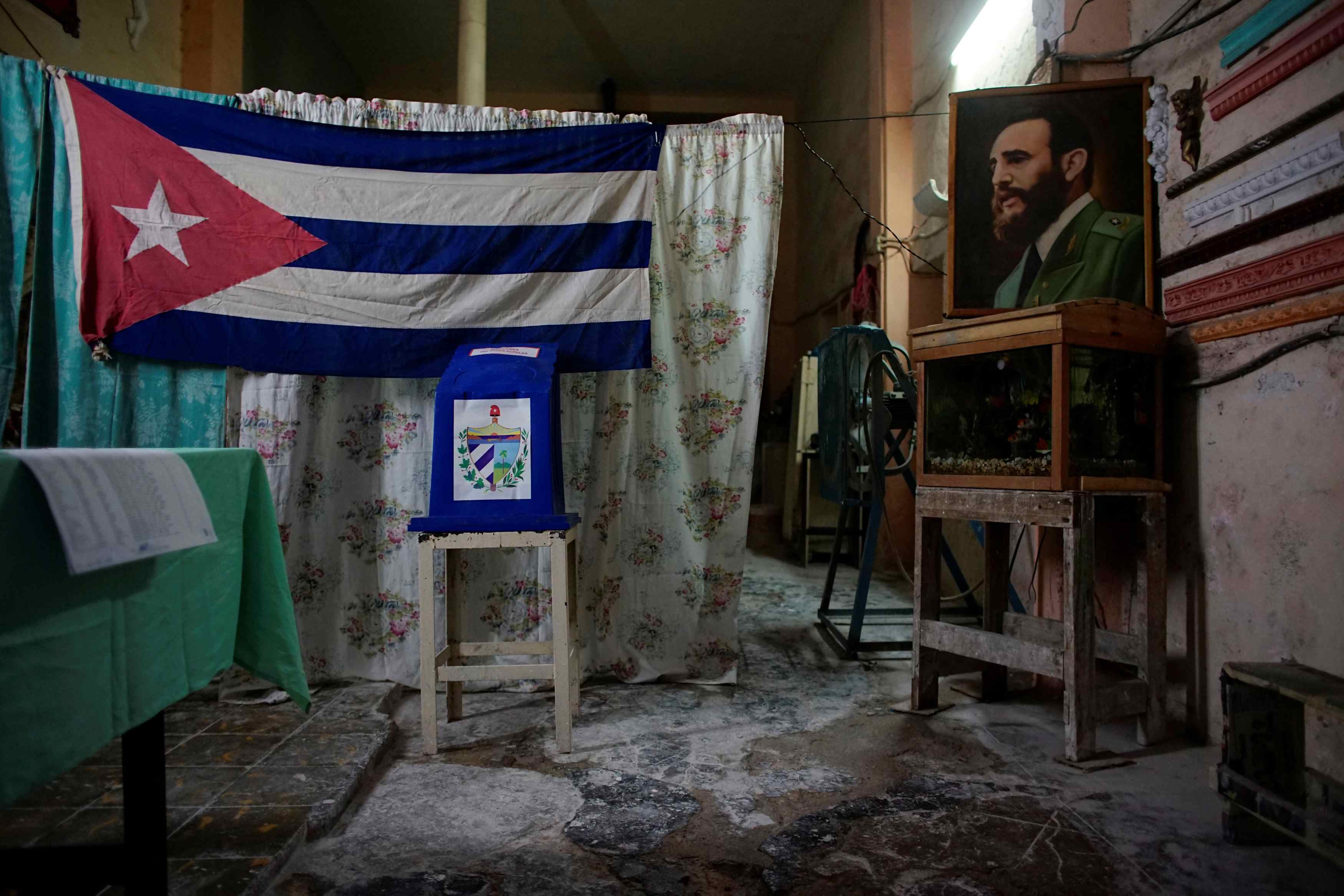
Politics
15:54, 28-Nov-2017
Over 85 pct of registered Cuban voters participate in municipal elections
CGTN

On Monday, a Cuban official said that over 85 percent of registered Cuban voters participated in Sunday's municipal elections, the first step of an electoral process in the island that will elect a successor to President Raul Castro with the newly constituted parliament.
In a press conference that announced the preliminary results, Alina Balseiro, president of the National Electoral Commission (CEN), said 7,608,404 Cubans voted in the election, a day after the Caribbean nation commemorated the first anniversary of the death of its former president, Fidel Castro.
"We had a massive turnout and our people voted with conscience, unity and responsibility. The process took place in a calm, organized way as we're used to every time there's an election in Cuba," Balseiro said.

Cuban students stand with a Cuban flag during a ceremony marking the anniversary of the deaths of student leaders killed during the fight against Spanish colonial rule, Havana, Cuba, November 27, 2017. /Reuters Photo
Cuban students stand with a Cuban flag during a ceremony marking the anniversary of the deaths of student leaders killed during the fight against Spanish colonial rule, Havana, Cuba, November 27, 2017. /Reuters Photo
According to the official, 11,415 delegates for municipal assemblies had been elected and 1,100 posts will be decided in a run-off vote on December 3.
"Of the total votes cast, 91.71 percent were valid, while 4.12 percent were left blank and 4.07 percent were annulled," said the electoral authority.
"With these preliminary figures, 35.4 percent of elected delegates are women while 14.3 are young people," Balseiro said.
The elected delegates are tasked with local governance in their communities. Most of them can also be candidates for parliamentary elections.
The CEN president said there wasn't a set date for the second stage of the general elections.

A view of a polling station decorated with an image of late Cuban President Fidel Castro moments before its opening to the public in Havana, Cuba November 26, 2017. /Reuters Photo
A view of a polling station decorated with an image of late Cuban President Fidel Castro moments before its opening to the public in Havana, Cuba November 26, 2017. /Reuters Photo
In the second stage, half of the candidates for provincial assemblies and Cuba's parliament will be picked by a commission of social organizations while the other half will be selected from the municipal elections in the first stage.
Once the new National Assembly begins its legislature next year, it will elect a new president of the Council of State to replace the current leader, Raul Castro, who is going to step down.
Raul Castro, 86, became president in 2008 and launched a series of socio-economic reforms after his brother Fidel stepped down due to illness.
Source(s): Xinhua News Agency

SITEMAP
Copyright © 2018 CGTN. Beijing ICP prepared NO.16065310-3
Copyright © 2018 CGTN. Beijing ICP prepared NO.16065310-3